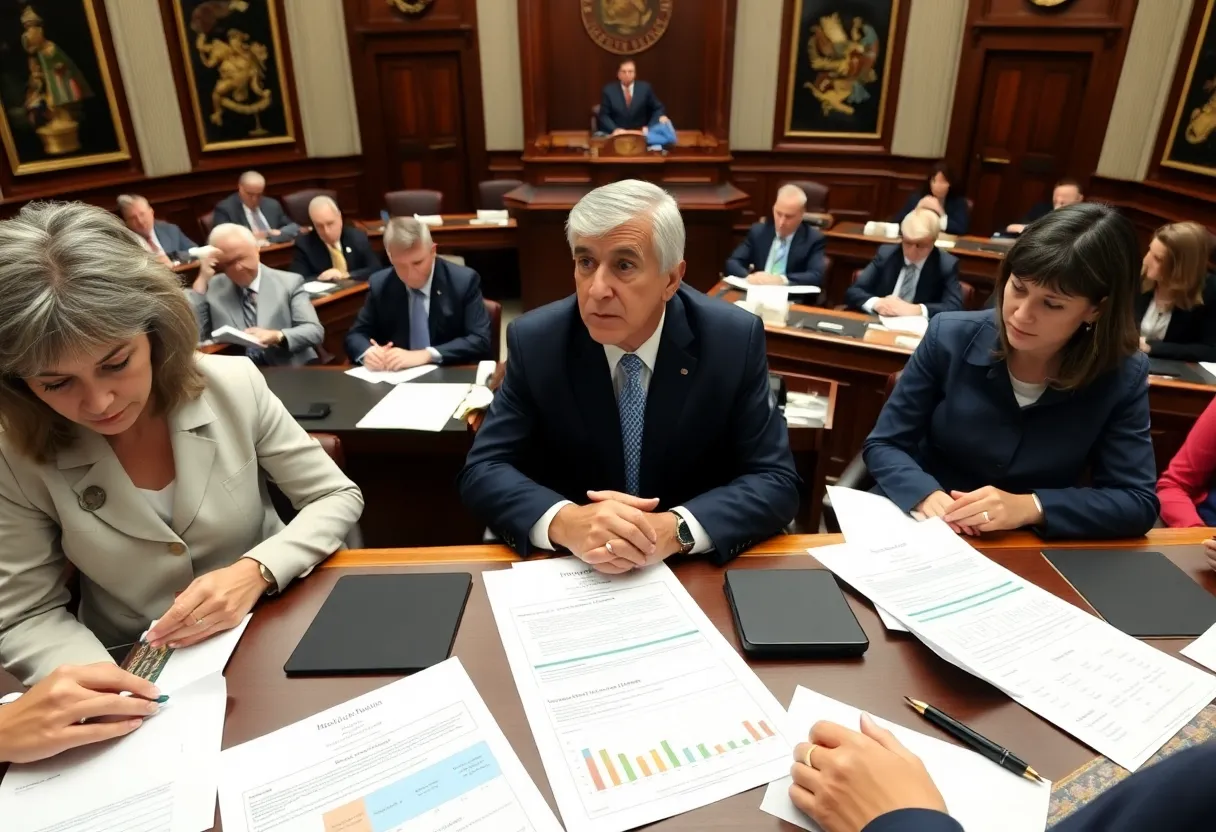News Summary
New York lawmakers have introduced a bill aimed at enhancing the management of a $9 billion Medicaid program for the disabled and elderly. Spearheaded by key health committee chairs, the proposal seeks to create new fiscal intermediaries for the Consumer Directed Personal Assistance Program (CDPAP). The initiative comes in response to disruptions caused by the transition to Public Partnerships LLC, which has led to delayed pay for many personal assistants. The proposal is gaining bipartisan support as lawmakers address potential federal changes to Medicaid reimbursement policies.
New York lawmakers have put forth a new bill this week aimed at improving the management of a $9 billion Medicaid program, which is intended for disabled and elderly residents. The proposal, spearheaded by State Senate Health Committee Chair Gustavo Rivera and Assembly Health Committee Chair Amy Paulin, seeks to enhance choices available within the Consumer Directed Personal Assistance Program (CDPAP). This initiative comes amid notable disruptions following the transition to management by Public Partnerships LLC that took effect on April 1.
The legislation proposes the establishment of a distinct category of smaller companies, known as fiscal intermediaries, which would grant CDPAP users a range of organizations to select from when arranging their care services. Critics of the transition have raised urgent concerns, particularly following reports that approximately 99,000 workers involved in CDPAP had not received timely paychecks, leading to a loss of health benefits during this tumultuous period. This situation has prompted many personal assistants to leave their roles, resulting in a significant shortage of caregivers, which in turn compromises the care provided to New York’s vulnerable populations.
Featuring stipulations for new fiscal intermediaries, the proposed legislation mandates that they contract with the state Health Department and operate under the oversight of the health commissioner or in conjunction with independent living centers. Lawmakers are emphasizing the pressing necessity for accountability from state administration regarding the recent operational disruptions that have been experienced.
As of the sixth week of payroll processing, Public Partnerships LLC has reportedly compensated around 191,000 personal assistants, which equates to over 99% of registered CDPAP workers. Since the management transition, the company has distributed over $619 million to approximately 198,000 individual personal assistants.
The Office of Governor Kathy Hochul has voiced opposition to the newly proposed legislation. The administration maintains that the unification under one statewide fiscal intermediary aims to minimize waste and combat fraud, addressing issues that previously led to financial crises in home care due to administrative inefficiencies associated with multiple intermediaries.
Supporters of the legislation argue that it would enhance services and improve care quality for CDPAP recipients throughout New York. As the current session of both the Assembly and Senate nears its conclusion, with deadlines set for June 12 and June 17 respectively, the proposal appears to be gaining bipartisan backing.
Lawmakers are also stressed over the looming possibility of federal changes to Medicaid reimbursement policies, which could significantly impact New York’s budget. The state currently relies heavily on taxes levied on managed care organizations, which may be subject to alteration by the federal government. Additionally, the state’s Medicaid expenditure is projected to grow at an unsustainable rate of 7% per annum over the next three years.
Governor Hochul’s administration is committed to defending New York’s funding in light of proposed budget cuts, yet it faces increasing pressure related to spending decisions and their potential long-term effects. Health care advocates have issued warnings that these funding alterations could result in the loss of health care coverage for around 2 million residents.
Despite New York’s successes in implementing Affordable Care Act programs that have provided Medicaid coverage to millions, opposition among Republican lawmakers regarding perceived spending issues complicates matters. In an increasingly complex landscape, New York must navigate the challenges posed by federal financial changes while striving to meet local health care needs.
Deeper Dive: News & Info About This Topic
- The New York Times: Medicaid Work Requirements Are Pointless
- Wikipedia: Medicaid
- Spectrum News: N.Y. Eyes Legal Battle Over Fed Approved $3.7B Tax on Medicaid Insurers
- Google Search: Medicaid funding new york
- NYS Focus: Trump and New York’s Medicaid Cuts Impact on Coverage
- Encyclopedia Britannica: Health Care
- Politico: Medicaid Cuts Threaten to Leave New York Democrats with Political Wounds
- Google News: Medicaid New York

Author: STAFF HERE NEW YORK WRITER
The NEW YORK STAFF WRITER represents the experienced team at HERENewYork.com, your go-to source for actionable local news and information in New York, the five boroughs, and beyond. Specializing in "news you can use," we cover essential topics like product reviews for personal and business needs, local business directories, politics, real estate trends, neighborhood insights, and state news affecting the area—with deep expertise drawn from years of dedicated reporting and strong community input, including local press releases and business updates. We deliver top reporting on high-value events such as New York Fashion Week, Macy's Thanksgiving Day Parade, and Tribeca Film Festival. Our coverage extends to key organizations like the Greater New York Chamber of Commerce and United Way of New York, plus leading businesses in finance and media that power the local economy such as JPMorgan Chase, Goldman Sachs, and Bloomberg. As part of the broader HERE network, including HEREBuffalo.com, we provide comprehensive, credible insights into New York's dynamic landscape.





